
Curtain Wall Joint Sealing
The curtain wall joint sealant acts as a fire barrier that slows the progression of fire, heat and smoke between floors of multi-storey buildings.
- With the increase in construction of high rise buildings, International building code (IBC) and National building code (NBC) added new fire protection areas.
- Perimeter seal or Curtain wall joint seal.
- Firestop Joint seal
Perimeter seal or Curtain wall joint seal.
Curtain wall joint seal :
- Building codes requires fire resistance of floor to be extended to outer wall.
- Glazed outer wall or curtain wall are installed leaving a gap of 100 to 300 mm.
- In case of fire in lower floor, the gap become path like chimney for spreading smoke , Heat and Fire
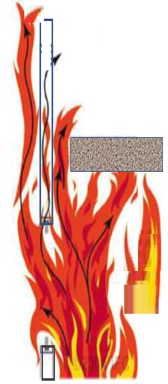

Path of fire propagation could be through gap, through outside and also through mullion.
Curtain wall joint seal works as
- Fire barrier
- Smoke barrier
- Acoustics
- Preventing loss of air-condition energy
- A physical barrier for dust etc.
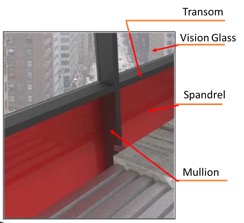
Six stages of Curtain wall sealing
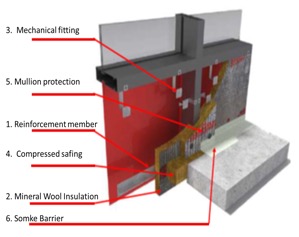
Standard : ASTM E 2307
Important
Considerations :
- Floor construction type
- Curtain wall construction type
- Joint width
- Movement requirement
- Fire rating
- Smoke rating
- Firestop material
Firestop joint seal
Joint between fire resistance rated assemblies shall be protected by an approved fire resistance joint system designated to resist the passage of fire for a time period not less than the required fire resistance rating of the assemblies in which it is installed.
- Such barriers have L rating for smoke prevention, not in excess of 5 CFM.
- These may have various expansion/ compression %
- Joints are tested against UL2079 standard.
- A joint may be floor- floor, floor – wall , head of wall , wall to wall.
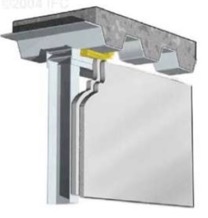
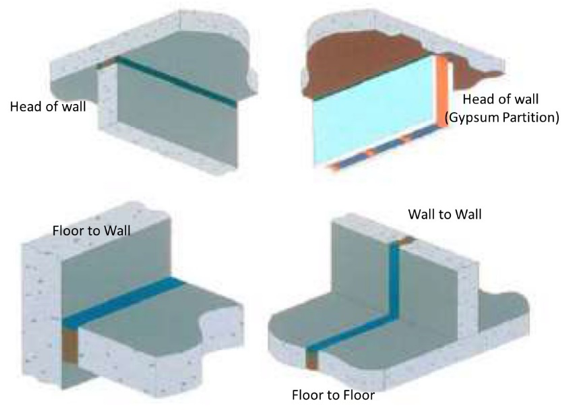
Standard : ASTM E 1966
Important
Considerations :
- Type of joint
- Nominal width
- Movement requirement
- Fire rating
- Smoke rating
- Firestop material depth
- Backer plate
Still have questions?
Phone: